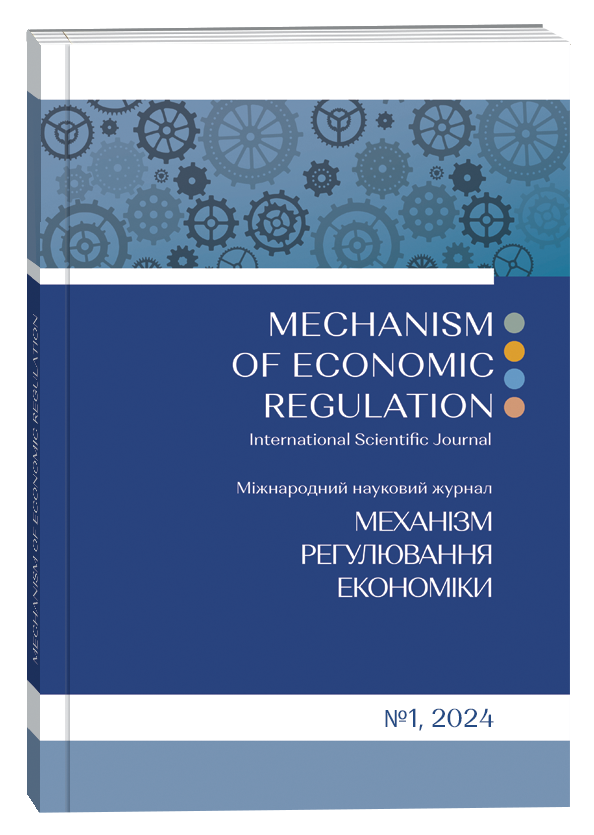ВПЛИВ ШТУЧНОГО ІНТЕЛЕКТУ НА ПРИЙНЯТТЯ БІЗНЕС-РІШЕНЬ
Анотація
У статті досліджується вплив штучного інтелекту на прийняття бізнес-рішень. Аналізуючи технічні, стратегічні та етичні аспекти цього явища, дослідження ставить за мету розкрити наслідки, які приносить інтеграція штучного інтелекту у процес прийняття рішень. У роботі проведено комплексний аналіз для вивчення знань та досвіду осіб щодо впровадження штучного інтелекту в бізнес-процеси щодо прийняття рішень. Досліджено деталі демографічних характеристик, рівня обізнаності про штучний інтелект, статусу впровадження, впливу на швидкість та точність прийняття рішень і етичні аспекти, пов'язані з упередженням у рішеннях, що базуються на штучному інтелекті. Результати свідчать, що стать та віковий розподіл впливають на знання та використання штучного інтелекту у прийнятті бізнес-рішень. Рішення, прийняті на основі штучного інтелекту, є домінуючими в секторі охорони здоров'я. Крім того, рівень обізнаності та впровадження штучного інтелекту свідчать про загально позитивний рівень обізнаності серед респондентів. Існує позитивне сприйняття того, що штучний інтелект дозволяє приймати рішення швидше з якісним внеском у точність бізнес-рішень. Однак є відомості про деякі упередження у рішеннях, що базуються на штучному інтелекті. Це підкреслює значущість проблеми справедливого та рівноправного застосування алгоритмів штучного інтелекту, що свідчить про важливість вирішення упереджень для забезпечення етичного прийняття рішень. В статті представлені результати гіпотезного тестування, що спрямоване на визначення того, чи залежить використання штучного інтелекту від точності бізнес-рішень. Результати вказали на недостатні докази для висунення значущого зв’язку між інтеграцією штучного інтелекту та точністю прийняття рішень. Це свідчить про те, що організації повинні вивчати додаткові фактори, які впливають на точність прийняття рішень, визнавши, що сама інтеграція штучного інтелекту може бути не єдиним визначальним фактором.
Посилання
Banerji, J., Kundu, K., Alam, P. A. (2020). An empirical investigation into the influence of behavioral biases on investment behavior. SCMS Journal of Indian Management, vol. 17(1), pp. 81–98.
Dagnino, G. B., Picone, P. M., Ferrigno, G. (2021). Temporary competitive advantage: a state‐of‐the‐art literature review and research directions. International Journal of Management Reviews, vol. 23(1), pp. 85–115.
Davenport, T. H., Harris, J., Shapiro, J. (2010). Competing on talent analytics. Harvard business review, vol. 88(10), pp. 52–58.
Eberhard, K. (2023). The effects of visualization on judgment and decision-making: a systematic literature review. Management Review Quarterly, vol. 73(1), pp. 167–214.
Green, S., McKinney, Jr E., Heppard, K., Garcia, L. (2018). Big Data, digital demand and decision-making. International Journal of Accounting & Information Management, vol. 26(4), pp. 541–555.
Joseph, J., Gaba, V. (2020). Organizational structure, information processing, and decision-making: A retrospective and road map for research. Academy of Management Annals, vol. 14(1), pp. 267–302.
Kartini, K., Nahda, K. (2021). Behavioral biases on investment decision: A case study in Indonesia. The Journal of Asian Finance, Economics and Business, vol. 8(3), pp. 1231–1240.
Kahneman, D., Tversky, A. (1979). Prospect Theory: An Analysis of Decision under Risk. Econometrica, vol. 47(2), pp. 263–291.
Kumar, A., Mangla, S. K., Luthra, S., Rana, N. P., Dwivedi, Y. K. (2018). Predicting changing pattern: building model for consumer decision making in digital market. Journal of Enterprise Information Management, vol. 31(5), pp. 674–703.
Mann, B. J. S., Sahni, S. K. (2019). Identifying the relationship between cultural dimensions and consumer decision making styles. Business & Social Sciences Journal, vol. 4(1), pp. 31–69.
Mökander, J., Morley, J., Taddeo, M., Floridi, L. (2021). Ethics-based auditing of automated decision-making systems: Nature, scope, and limitations. Science and Engineering Ethics, vol. 27(4), p. 44.
Nazarov, A. S., Mitina, O. V. (2023). Psychological foundations of the moral qualities of a leader in decision-making. European Journal of Interdisciplinary Research and Development, vol. 11, pp. 213–217.
Shannon B. N., McGee, Z. A., Jones, B. D. (2019). Bounded rationality and cognitive limits in political decision making. Oxford Research Encyclopedia of Politics.
Sugiarto, I. (2023). Strategic financial intelligence in the digital age: harnessing advanced data analytics for informed decision-making amidst complex business landscapes. International journal of economic literature, vol. 1(3), pp. 293–304.
Sydelko, P., Midgley, G., Espinosa, A. (2021). Designing interagency responses to wicked problems: Creating a common, cross-agency understanding. European Journal of Operational Research, vol. 294(1), pp. 250–263.
Wakker, P. P. (2023). The correct formula of 1979 prospect theory for multiple outcomes. Theory and Decision, vol. 94(2), pp. 183–187.
Zhou, S. S., Zhou, A. J., Feng, J., Jiang, S. (2019). Dynamic capabilities and organizational performance: The mediating role of innovation. Journal of Management & Organization, vol. 25(5), pp. 731–747.
Stone, M., Aravopoulou, E., Ekinci, Y., Evans, G., Hobbs, M., Labib, A., ... & Machtynger, L. (2020). Artificial intelligence (AI) in strategic marketing decision-making: a research agenda. The Bottom Line, vol. 33(2), pp. 183–200.
Benbya, H., Davenport, T. H., Pachidi, S. (2020). Artificial intelligence in organizations: Current state and future opportunities. MIS Quarterly Executive, vol. 19(4).
Schlögl, S., Postulka, C., Bernsteiner, R., Ploder, C. (2019). Artificial intelligence tool penetration in business: Adoption, challenges and fears. Knowledge Management in Organizations: 14th International Conference, KMO 2019, Zamora, Spain, July 15–18, 2019, Proceedings 14. Springer International Publishing, pp. 259–270.
Rodgers, W., Murray, J. M., Stefanidis, A., Degbey, W. Y., Tarba, S. Y. (2023). An artificial intelligence algorithmic approach to ethical decision-making in human resource management processes. Human Resource Management Review, vol. 33(1), 100925.
Olan, F., Arakpogun, E. O., Suklan, J., Nakpodia, F., Damij, N., Jayawickrama, U. (2022). Artificial intelligence and knowledge sharing: Contributing factors to organizational performance. Journal of Business Research, vol. 145, pp. 605–615.
Saha, G. C., Eni, L. N., Saha, H., Parida, P. K., Rathinavelu, R., Jain, S. K., Haldar, B. (2023) Artificial Intelligence in Pharmaceutical Manufacturing: Enhancing Quality Control and Decision Making. Rivista Italiana di Filosofia Analitica Junior, vol. 14(2), p. 2023.


